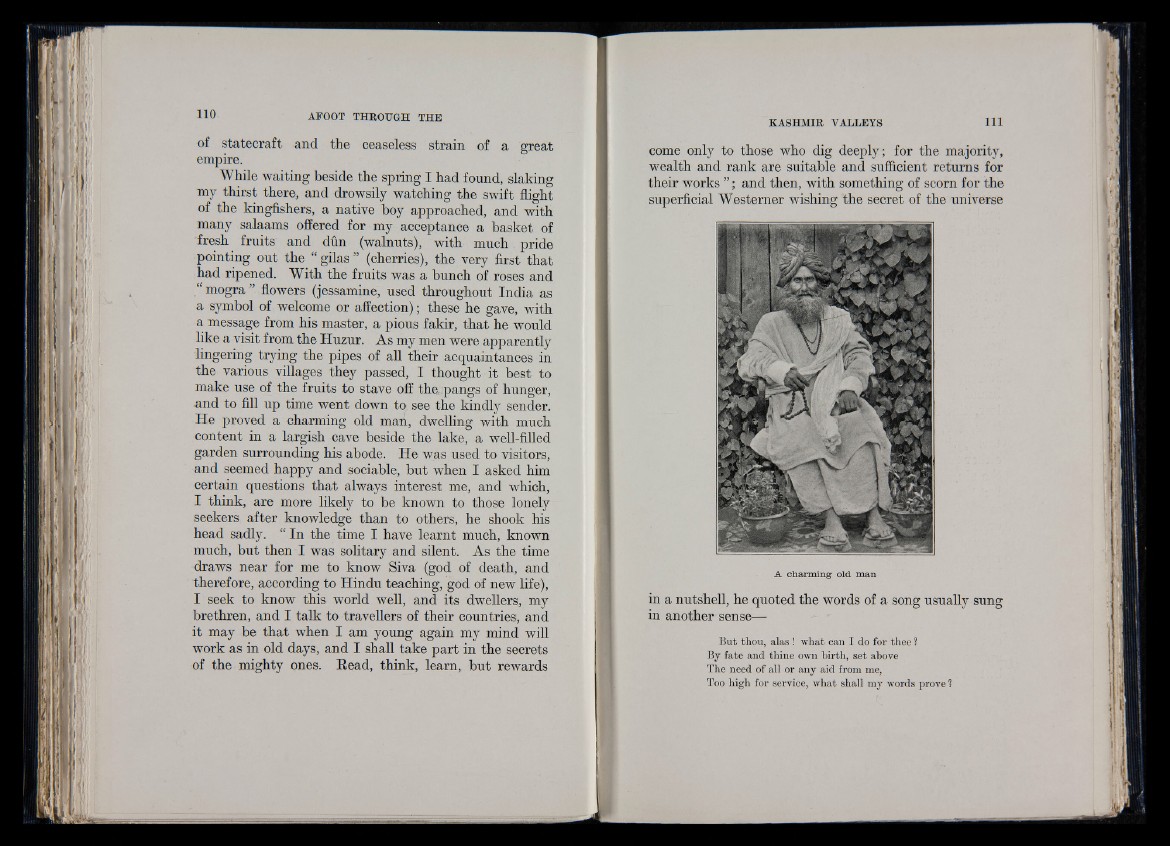
of statecraft and the ceaseless strain of a great
empire.
While waiting beside the spring I had found, slaking
my thirst there, and drowsily watching the swift flight
of the kingfishers, a native boy approached, and with
many salaams offered for my acceptance a basket of
fresh fruits and dun (walnuts), with much pride
pointing out the “ gilas ” (cherries), the very first that
had ripened. With the fruits was a bunch of roses and
“ mogra ” flowers (jessamine, used throughout India as
a symbol of welcome or affection); these he gave, with
a message from his master, a pious fakir, that he would
like a visit from the Huzur. As my men were apparently
lingering trying the pipes of all their acquaintances in
the various villages they passed, I thought it best to
make use of the fruits to stave off thejpangs of hunger,
•and to fill up time went down to see the kindly sender.
He proved a charming old man, dwelling with much
content in a largish cave beside the lake, a well-filled
garden surrounding his abode. He was used to visitors,
and seemed happy and sociable, but when I asked him
certain questions that always interest me, and which,
I think, are more likely to be known to those lonely
seekers after knowledge than to others, he shook his
head sadly. “ In the time I have learnt much, known
much, but then I was solitary and silent. As the time
draws near for me to know Siva (god of death, and
therefore, according to Hindu teaching, god of new life),
I seek to know this world well, and its dwellers, my
brethren, and I talk to travellers of their countries, and
it may be that when I am young again my mind will
work as in old days, and I shall take part in the secrets
of the mighty ones. Read, think, learn, but rewards
come only to those who dig deeply; for the majority,
wealth and rank are suitable and sufficient returns for
their works ” ; and then, with something of scorn for the
superficial Westerner wishing the secret of the universe
A charming old man
in a nutshell, he quoted the words of a song usually sung
in another sense—
But thou, alas ! what can I do for thee 1
By fate and thine own birth, set above
The need of all or any aid from me,
Too high for service, what shall my words prove 1